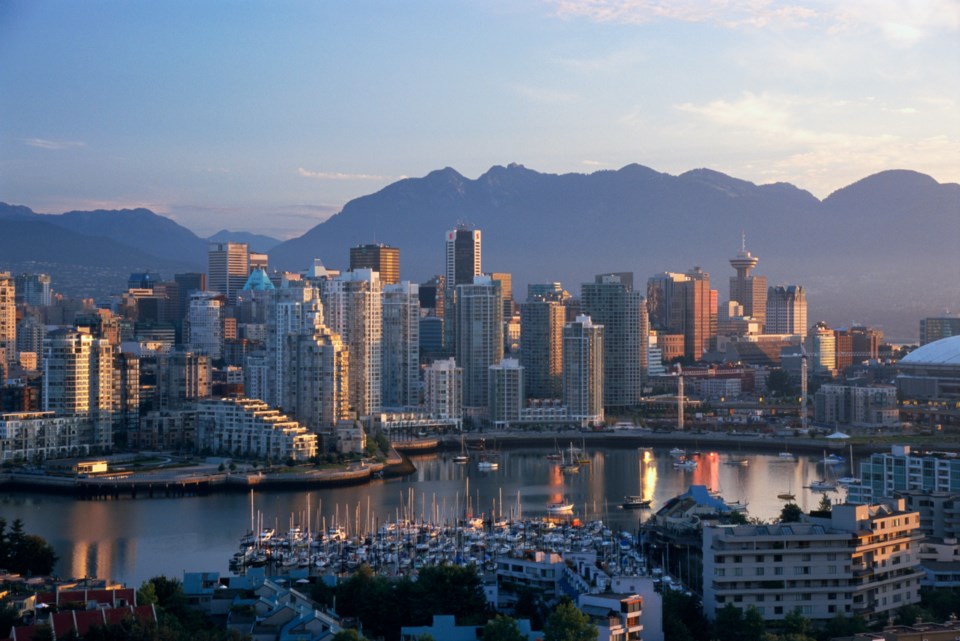Few Vancouverites know that a standing committee of Â鶹´«Ã½Ó³»City Council is , or that the sole item on the agenda is 30-year citywide Â鶹´«Ã½Ó³»Plan. It’s dubbed “a long range plan to guide growth and change.”
Even fewer people will know that once adopted, it could be deemed equivalent to an official community plan for the entire city of just over 660,000 today. Fewer people still will know that provincial housing minister David Eby is angling for legislative changes to eliminate the need for public hearings on rezonings/developments in Â鶹´«Ã½Ó³»if they are deemed consistent with the official community (or development) plan. The provincial government has already done this in other municipalities in B.C. The potential for the public to influence the future of our own neighbourhoods and communities is seriously threatened.
The final draft Â鶹´«Ã½Ó³»Plan was released to the public just under a week ago. Media coverage has been unacceptably minimal and late to notify the public of this important decision set for July 6. The public cannot be blamed for not knowing.
However, many community groups and experts slammed the draft Â鶹´«Ã½Ó³»Plan in letters to Council and via social media.
Kerry Gold of the opinions of numerous urban planners in Vancouver: “Good urban design – the kind that makes a city walkable, with cherished gathering spots, like a corner coffee shop, vibrant density and character – they [the experts interviewed] argue, is increasingly being sidelined in favour of ill-conceived density without context.” She quotes former senior architect, urban designer and development planner Ralph Segal, “You could say, ‘Well, maybe the Broadway Plan won’t be a complete disaster,’ but approval of the Â鶹´«Ã½Ó³»Plan and its approach to planning and affordable housing, will nail it as a disaster.”
In a letter to City Council, retired architect, former senior urban designer in Vancouver, and adjunct professor of urban design at UBC Scot Hein : “The plan must strongly resonate so that it is perceived as ‘honourable’ and ‘relevant.’ The hard work that is necessary to achieve this outcome, despite the appreciated efforts to date, has not yet been done.”
The Coalition of Â鶹´«Ã½Ó³»Neighbourhoods points out serious concerns about the Â鶹´«Ã½Ó³»Plan in a , including the lack of neighbourhood-based planning, lack of urban design, excessive population targets, lack of consideration of existing capacity, too many towers targeting investment trusts and not enough ground-oriented family housing, no policy for heritage and character retention, lack of provision of green space, lack of consideration of embodied emissions, lack of consideration of city services, and lack of social license. CVN concludes, “Please do not approve this plan. Instead, please refer it back to staff for meaningful local neighbourhood planning.”
UBC School of Community & Regional Planning professor emeritus Penny Gurstein prior to the July 6 meeting, “As a strong proponent of the need for an overall city-wide plan, I am extremely disappointed by what has been produced.” Among her eight points, “the one- size-fits-all nature of the plan does not demonstrate the unique characteristics of neighbourhoods that need to be preserved,” “Where are the residents going to go who are being displaced?” and “the plan has a deeply flawed engagement process.”
So, the Â鶹´«Ã½Ó³»Plan has attracted a mountain of criticism.
Thankfully, Scot Hein . “I recommend that a second citywide plan diagram be produced that starts with people and place, at the scale of the community “heart” (local school catchment and nearby local shopping)… My recommendation is to receive the work to date as “foundational” for the purposes of another iterative round of deeper engagement. After this engagement, further reflection for the purposes of comparison, and potential integration, should be completed before the next council votes to formalize. The overarching diagram must properly reflect our shared aspirations… Please do not formalize yet, rather wait for greater local insight and narrative to influence the citywide plan values and related diagrammatic representation.”
The above is just the tip of the iceberg of comments reaching Council. The public needs to know that this discussion is going on and a decision is imminent. The implications are huge for generations ahead. Concerned residents should on this topic (deadlines are imminent).
I strongly believe the Â鶹´«Ã½Ó³»Plan is ill-begotten and could do enormous harm to our city if adopted. I hope City Council will reject the proposed plan and send it back for much more work to be done after the October 2022 civic election, and this time involve the people of Â鶹´«Ã½Ó³»in a more meaningful way.
Randy Helten is president of CityHallWatch



